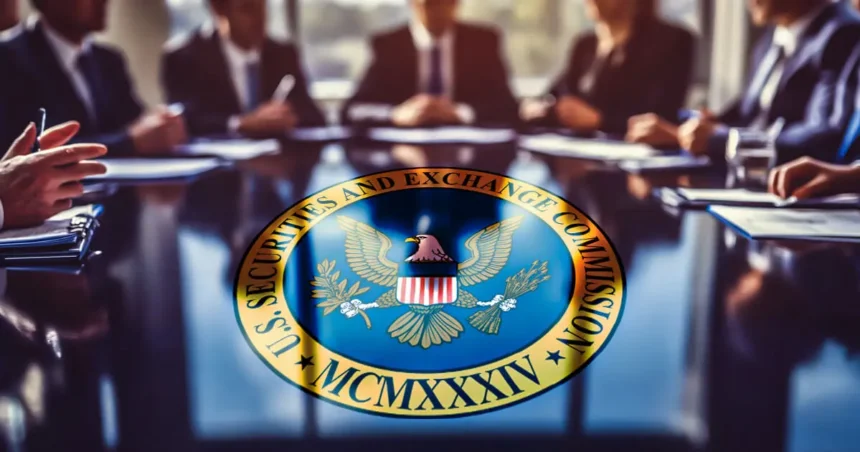A public roundtable by the U.S. Securities and Exchange Commission (SEC) featuring its crypto task force discussing the application of the securities laws to digital assets. The meeting comes as the Trump administration seems to be putting the finishing touches on an overhaul of cryptocurrency regulations.
SEC Crypto Task Force Meets in Public for First Time
Then at the roundtable on Friday, experts were discussing the regulatory framework with regard to digital assets. These included ex-SEC officials and industry figures such as John Reed Stark, a Miles Jennings of Andreessen Horowitz’s (a16z) crypto arm, and former SEC Commissioner Troy Paredes. The task force is headed by SEC Commissioner Hester Peirce, a Republican who has been demanding a “restart” in how the SEC approaches crypto regulation.
Crypto Securities Framework Under Debate
The debate had focused on the status of crypto tokens under existing securities laws. The crypto industry has long argued that many digital assets are more like commodities than securities. Description of such a classification would categorize crypto firms under SEC registration and disclosure requirements. Other topics discussed on the round table included whether crypto requires its own regulatory framework outside of traditional equities.
Default to Technology-Neutral Policy
Miles Jennings of a16z encouraged the SEC, as well, to take a “technology-neutral” approach and create regulation regarding systems like ETH that would show that it was not traditional equity ownership. This method reinforces the use of data basis in these different nature of the entities through the use of them in the blockchain technology and digital assets.
Concerns Booster Shots Will Be Eased
SEC Commissioner Caroline Crenshaw, a Democrat, expressed concern about creating a separate regulatory regime for the commodity. She warned that “rewriting current laws to Favor one product category” could potentially harm the system by undermining investor protections or triggering a ripple effect in already-regulated markets.
Keep this in mind when making your decision.
The roundtable is part of the Trump administration’s broader push to reform cryptocurrency policy. President Trump, whose campaign had presented him as “the crypto president,” has made a promise to reverse what he characterizes as a “crackdown” on the industry by his predecessor. New leadership at the SEC has also opted to stay or dismiss some lawsuits against crypto companies. Trump has also issued executive orders, establishing a strategic reserve of cryptocurrencies and holding industry summits at the White House. This gesture marks a sign of a potential shift in the United States scenario regarding regulation of digital assets.
It was followed by an SEC roundtable discussion (pdf) on this topic to be considered an epoch-making event in a step to institutional boundaries for a new cloud. This goes to the core of whether crypto tokens should be treated as securities or as commodities — with huge implications for the way these assets are traded and regulated. The industry argues that a technology-neutral approach would safeguard investors while giving way to innovation.
The discussion among SEC commissioners also underscores the core conundrum of trying to apply existing financial laws to the novel characteristics of digital assets. The concern that an independent regulatory regime may jeopardize investor protections highlights the necessity for a comprehensive approach to preserve market stability. The US Securities and Exchange Commission will decide whether or not to allow exchange-traded funds linked to cryptocurrencies in the country.
“How does the Trump administration own crypto policy and potential adoption of a more industry-friendly regulatory regime? Crypto strategic reserve and hosting crypto industry summits are a sign they are open to the sector and what it potentially can output. But we have to wonder how far this administration will go in the name of innovation, consumer protection be damned.
Results of these deliberations have already been the subject of great anticipation among the crypto sector as it will ultimately decide the environment in which businesses will have to operate and whether any investors will feel secure enough to enter into any activity in the market. Setting clear and consistent guidelines is a critical step to ensure a stable and transparent marketplace. Not only is the SECs decision going to impact the US market, it is also going to create ripples around the world in the regulatory landscape of cryptocurrencies. This is a great topic of discussion between business and regulators to ensure we have a framework that enables innovation but also minimizes risk.”






